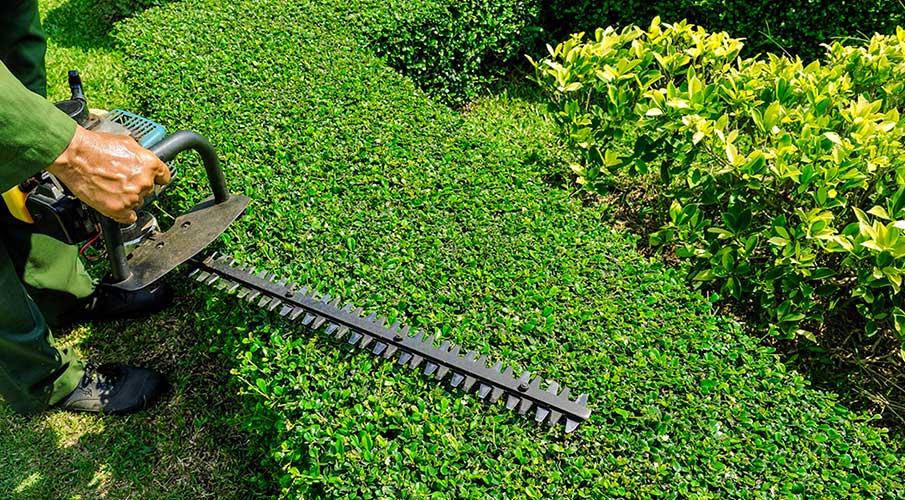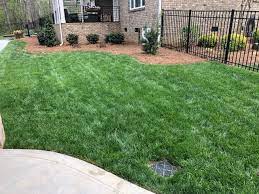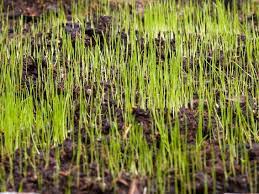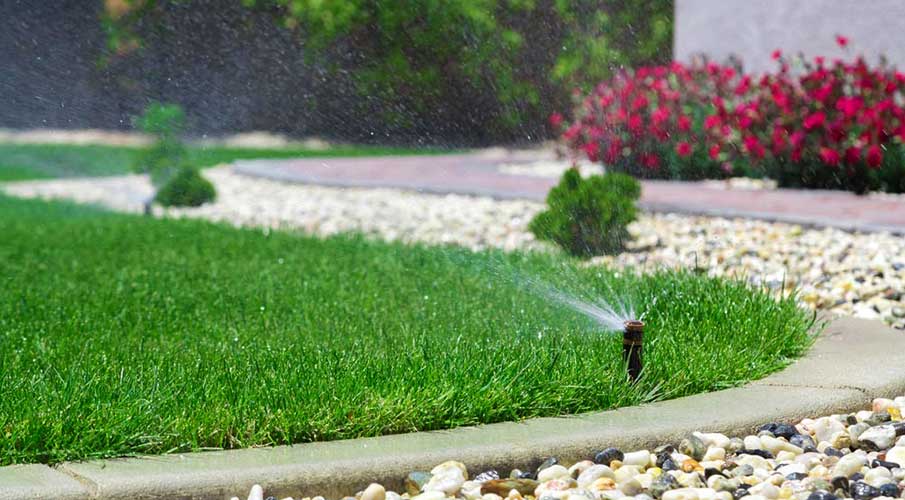Bermuda grass vs fescue, which is better? When it comes to choosing the right grass for your lawn, there are a lot of factors to consider. Two popular options in the transition zone are Bermuda grass and fescue. Generally, if you want your lawn to look its nicest, you’ll plant fescue. However, if you don’t care about looks and just want low maintenance, Bermuda may be a good choice. In this article, we’ll compare these two grasses across the categories of maintenance, appearance, and growing season.
Maintenance
Bermuda grass is known for its low maintenance requirements. It is a warm-season grass that thrives in hot temperatures, so it needs less water than fescue. This is in part because Bermuda grass roots can reach up to 14ft deep. This makes bermuda very hardy, but also very difficult to kill when it’s not wanted. Bermuda grass also spreads quickly, it propagates through rhizomes and stolons which means it can fill in bare spots and repair itself. However, this fast growth can also be a disadvantage if you don’t mow it frequently enough. Bermuda grass can quickly become overgrown and difficult to manage if left unchecked. In Southwest Missouri and other parts of the transition zone, bermuda grass has a short growing season due to the cooler temperatures of the Spring and Fall.
Fescue, on the other hand, requires more maintenance than Bermuda grass. It is a cool-season grass that grows best in the Spring and Fall. Fescue needs more water than Bermuda grass, so it may require irrigation during the summer months. Fescue also doesn’t spread as quickly as Bermuda grass, so it may need to be reseeded in bare spots. Reseeding can be avoided by watering and fertilizing fescue appropriately.
Appearance
Bermuda grass has a fine texture and a bright green color, which many people find appealing. It also has a low, dense growth habit that creates a uniform appearance. However, the short growing season of Bermuda leaves it looking dead for most of year.
Fescue has a coarser texture and a darker green color than Bermuda grass. It also has a more upright growth habit, which can create a less uniform appearance when not maintained. When kept thick and healthy, fescue has lush, rich appearance.
Growing Season
Bermuda grass is a warm-season grass that goes dormant in cooler weather. This means that it won’t green up until late May and will turn brown in October. Most of the year it won’t look very good, however, once it starts growing it grows quickly and can handle heavy foot traffic.
Fescue is a cool-season grass that grows best in the Spring and Fall. It can handle some cold weather, but it may struggle in extreme temperatures. Fescue will stay green year round with proper care, and it won’t grow much during the Winter. It can be more sensitive to foot traffic than Bermuda grass, so it may not be the best choice if you have large pets that are constantly running around.
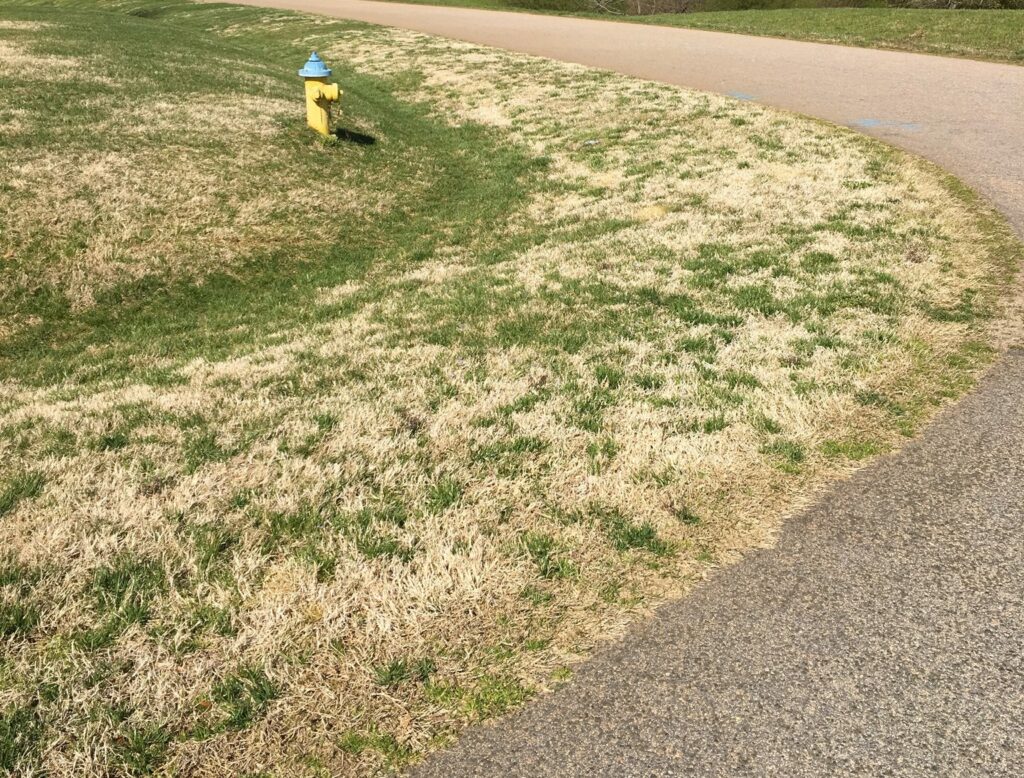
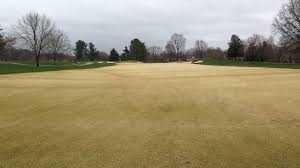
Bermuda Grass vs Fescue Conclusion
In conclusion, both Bermuda grass and fescue have their pros and cons. If you’re looking for a low-maintenance option that can handle heavy foot traffic but don’t care about looks, Bermuda grass may be the way to go. However, if you prefer rich looking grass and don’t mind putting in a bit more effort to maintain your lawn, fescue is the better choice. Most lawns in Southwest Missouri choose fescue. Ultimately, the right choice will depend on your personal preferences and the specific needs of your lawn.
Learn more about caring for fescue grass in this article.
Want a professional company to assess the seeding needs of your lawn? Get an estimate by clicking here from Midwest Turf Pros.
